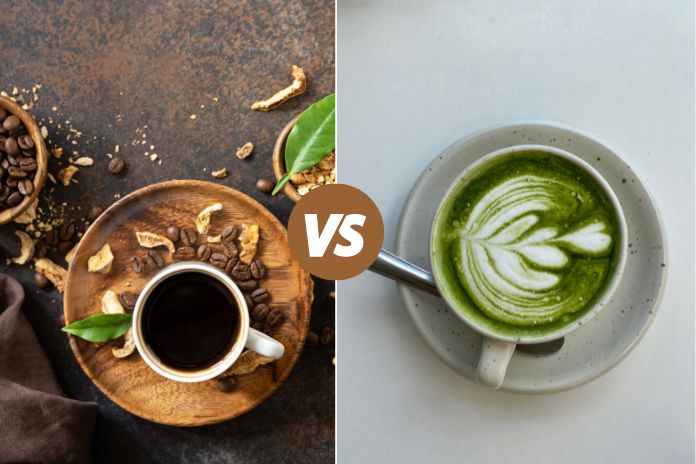Blog

Mushroom Coffee vs Mushroom Matcha
Both mushroom coffee and matcha tea offer potential health benefits that could contribute to longevity, but it ultimately depends on individual preferences and health goals. Here's how each could potentially support longevity:
Mushroom coffee: The medicinal mushrooms used in mushroom coffee, such as chaga, lion's mane, and cordyceps, contain various bioactive compounds that have been studied for their potential health-promoting effects, including antioxidant, anti-inflammatory, and immune-modulating properties. These mushrooms may support overall health and potentially contribute to longevity by protecting against chronic diseases and promoting immune function.
Mushroom coffee:
· Contains extracts from medicinal mushrooms like chaga, lion's mane, or cordyceps.
· Claims to provide a natural energy boost without the jitters or crash associated with regular coffee.
· May support cognitive function, immunity, and overall well-being due to the compounds found in mushrooms.
· Typically has a earthy or slightly bitter flavor profile depending on the mushroom used.
· Mushroom coffee often contains less caffeine than traditional coffee, but the exact amount can vary depending on the specific blend and brewing method. On average, mushroom coffee may contain around 50-100 milligrams of caffeine per serving, but this can vary.
Matcha tea:
· Made from finely ground green tea leaves, providing a concentrated dose of antioxidants and nutrients.
· Offers a more sustained energy release compared to coffee, thanks to the combination of caffeine and L-theanine.
· Promotes relaxation and mental clarity due to the calming effects of L-theanine.
· Known for its vibrant green color and slightly vegetal taste, which can be enhanced with sweeteners or milk if desired.
Matcha tea: Matcha tea is rich in antioxidants, particularly catechins, which have been linked to various health benefits, including reduced risk of heart disease, improved cognitive function, and enhanced metabolism. Additionally, matcha contains L-theanine, an amino acid that promotes relaxation and mental clarity, potentially reducing stress and promoting overall well-being, which could indirectly contribute to longevity.
Matcha tea typically contains around 35-70 milligrams of caffeine per teaspoon (2 grams) of matcha powder when prepared with water. However, higher grades of matcha may contain more caffeine.

Comments (0)